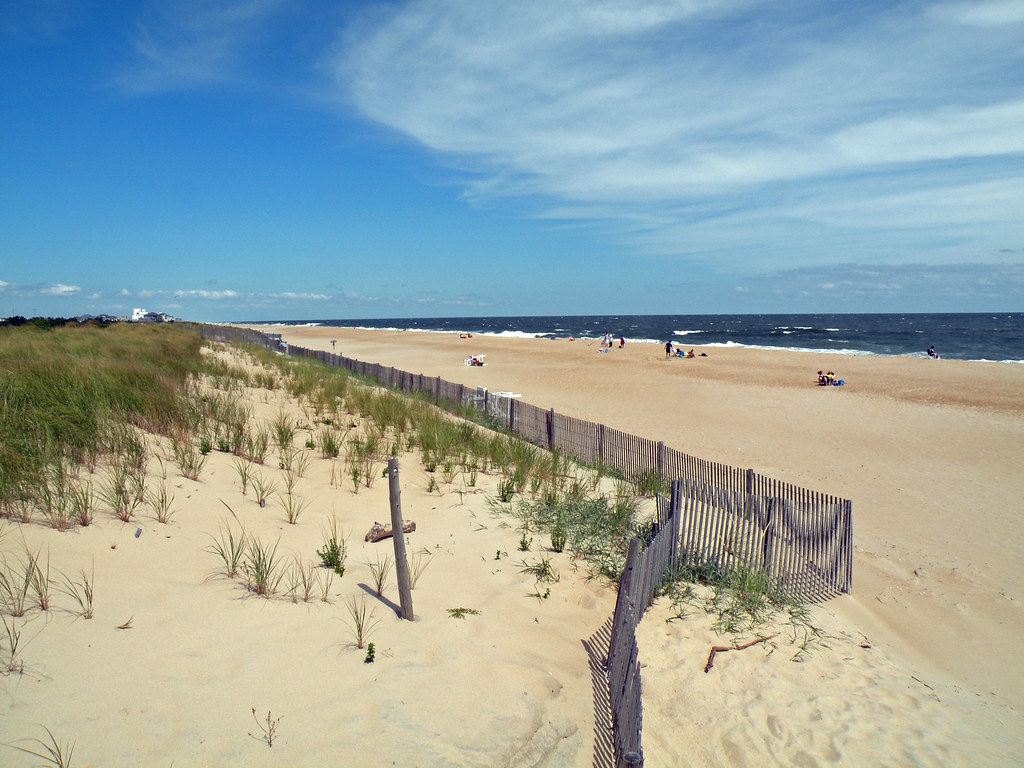“Blue” technology is a type of environmental tech industry that involves the ocean — everything from robotic boats to AI-based data science to offshore wind farms.
Naturally, Delaware’s blue tech is primarily centered in the downstate coastal area, with the University of Delaware’s College of Earth, Ocean, and Environment in Lewes at its heart. Even as Delaware’s tech ecosystem is often thought of as an upstate thing — the banks, bootcamps and biotech in Wilmington, and the tech coming out of UD’s main campus in Newark — the public-private initiative Project ABLE has brought Sussex County tech to the spotlight.
Now a new nonprofit, the Delaware Coastal Society, led by Greg Godbout, is launching a blue tech accelerator on the coast.
The accelerator focuses on four target areas:
- Sustainable fisheries
- Reduction of marine pollution
- Conserving marine life
- Protection from climate change
“We see our role as to help nurture, foster and accelerate the small business community,” Godbout told Technical.ly.
The program, which is partnered with UD’s College of Earth, Ocean, and Environment, is initially focusing on young startups that have started to establish themselves enough to participate in blue tech initiatives, while receiving business coaching and steady support to help them grow.
So far, there are two companies attached to the Delaware Coastal Society accelerator: AI data science startup Flamelit from Texas that is currently working with Baltimore-based digital service firm Fearless‘ 24-month accelerator program, Hutch; and Lucky Rabbit, a government contracting startup that recently relocated to Delaware, and previously participated in Hutch.
“When people think about Sussex County, Delaware, we’re known for our beaches. But we have these these amazing labs [too].”Greg Godbout Delaware Coastal Society
“I picked two small, early-stage companies that both have existing contracts, they’re stabilized,” Godbout said. “Now how do they grow and how do we support that? I’m using those two companies as early-stage guinea pigs, for lack of a better word, to experiment.”
If all goes to plan, the first inaugural class of startups will start in early 2024 with a two-year incubator supported by Fearless. It’s expected that, at least at first, most of the startups will be from out of state, but they will spend time in Delaware, network with local technologists and launch initiatives here.
“When people think about Sussex County, Delaware, we’re known for our beaches,” Godbout said. “But we have these these amazing labs, and we’re very regionally closely located to Philadelphia, Baltimore, New Jersey and DC.”
Like priming the pump, these startups that are injected into Sussex County will help foster a working ecosystem, making it easier for local potential business owners to see themselves as part of it.
“To me, that’s really what a tech hub is,” Godbout said. “When I think of this area, we have these amazing assets, and post COVID, technologists and entrepreneurs can work from anywhere. Why not work from the beach?”
Before you go...
Please consider supporting Technical.ly to keep our independent journalism strong. Unlike most business-focused media outlets, we don’t have a paywall. Instead, we count on your personal and organizational support.
Join our growing Slack community
Join 5,000 tech professionals and entrepreneurs in our community Slack today!

The person charged in the UnitedHealthcare CEO shooting had a ton of tech connections

From rejection to innovation: How I built a tool to beat AI hiring algorithms at their own game

Where are the country’s most vibrant tech and startup communities?



